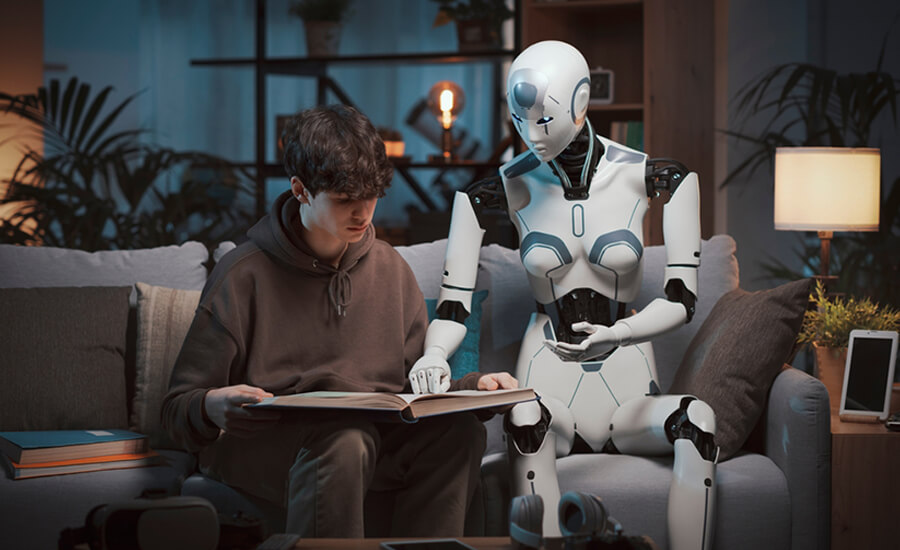In the realm of education, a profound shift is underway, driven by the power of artificial intelligence (AI). From personalized learning experiences to efficient administrative tasks, AI is rapidly transforming the landscape of education. It is making learning more engaging, inclusive, and accessible, shaping a future where all students can reach their fullest potential.
A key way AI is transforming education is through personalized learning. Not all students learn the same way or at the same pace. AI can help address this by adapting learning materials to suit each student’s unique learning style and pace. For example, intelligent tutoring systems can provide personalized exercises and feedback, while adaptive learning platforms can adjust content in real-time based on a student’s performance. This results in a more engaging and effective learning experience.
AI can also make education more inclusive. Tools like speech recognition and predictive text can assist students with disabilities, making learning materials more accessible. Moreover, AI can help overcome language barriers through real-time translation and transcription services, thereby expanding the reach of quality education.
Another transformative application of AI is in student assessment and feedback. AI can automate the grading of multiple-choice and fill-in-the-blank tests, freeing up time for educators to focus on more complex student interactions. Beyond this, AI can analyze patterns in a student’s work to provide targeted feedback and identify areas for improvement. This ongoing, personalized feedback can support student growth and learning outcomes.
Administrative tasks, too, can be streamlined with AI. AI chatbots can handle common student inquiries, making school administration more efficient. Furthermore, AI can be used to analyze school-wide data to identify patterns and trends, informing decision-making on everything from scheduling to resource allocation.
Yet, while the benefits of AI in education are manifold, there are also challenges to consider. Data privacy is a critical concern. Schools must ensure that student data is handled securely and responsibly. Moreover, there’s a need for human oversight. AI can support educators, but it cannot replace the human connection that is crucial for learning. Teachers play a vital role in inspiring and motivating students, something that AI cannot replicate.
Looking forward, the role of AI in education is set to expand. We may see AI creating customized learning paths for each student, intelligent virtual reality experiences for immersive learning, or even AI mentors providing career advice.


The future of AI in education is bright and filled with potential. As we continue to innovate, we must remember to center our efforts around the ultimate goal: enhancing the learning experience for all students. By harnessing the power of AI responsibly and ethically, we can create a future of education that is more engaging, inclusive, and empowering.

